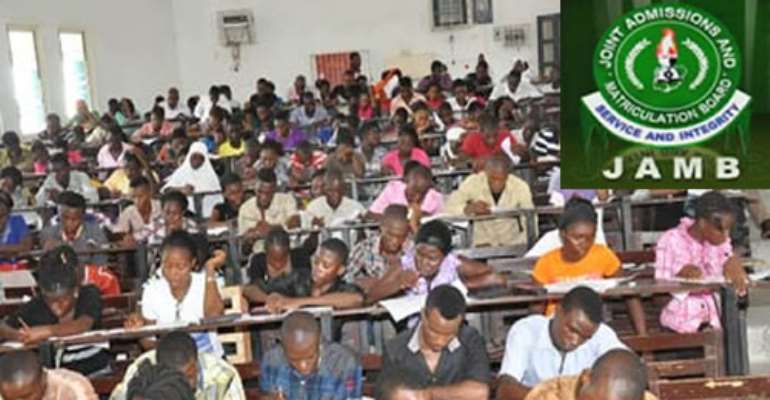Proposed review of JAMB admission policy – The Guardian

That the Federal Government announced the other day that it may review the Joint Admissions and Matriculation Board (JAMB) admission policy, as it affects colleges of education, underscores the inherent flaws in the process of admission into tertiary institutions in the country. The reported decline in the population of students in colleges of education following the introduction of Universal Tertiary Matriculation Examination (UTME) is one but not the only problem. The quota system by which qualified candidates from some states are denied admission is another. So is the progressive reduction in admission cut-off points for some states. But the negative impact of JAMB admission policy on colleges of education, whereby, there is a drastic decline in the population of students at that level of education is partially unfortunate.
While an argument has been put up that JAMB should be scrapped in view of the existence of so many universities in the country which was not the case when JAMB was set up in 1978, many Nigerians still believe that the body should remain as a clearing house and for standardization of admission entry qualifications. The truth is that over the years, JAMB's existence has been a mix of blessings and sometimes unsavoury consequences.
Minister of Education Malam Ibrahim Shekarau, reportedly, was in Katsina as part of his impact assessment tour of federal tertiary institutions in the state. He was responding to a remark by the Provost of the Federal College of Education, Katsina, Professor M.A. Wasagu, who lamented that there has been a decline in the population of students at the college owing to the UTME conducted by JAMB.
Wasagu had noted that only the dregs of candidates who sit for UTME annually and failed to gain admission into universities are left to the colleges of education. With the unified JAMB examination, he argued, colleges of education were left only with students who could not gain admission into the universities. He then asked for a policy that would guarantee the colleges of education enough students.
This anxiety expressed by Wasagu is real and needs to be addressed. Nevertheless, the entire problem cannot be attributed to the conduct of the UTME by JAMB. What the UTME examination has done is to worsen an already bad situation not only in the colleges of education but also in the polytechnics and colleges of technology. There was already a decline in the population of students in the colleges of education across the country before the UTME was introduced by JAMB a few years ago.
It is pertinent to recall that prior to 2008 or thereabout before the UTME was introduced, JAMB was conducting the Monotechnics, Polytechnics and Colleges of Education (MPCE) entrance examination for candidates seeking admission into those institutions. The statistics showed that there was a decline in the number of candidates applying into those institutions, particularly, the colleges of education. At the same time, the number of applicants seeking admission into the universities bloated. The truth is that there is general preference for university education over the colleges of education and the polytechnics owing to the low premium placed on teachers and HND holders.
Faced with this very critical situation, the solution to the problem does not necessarily lie in changing JAMB's admission policy alone. It is in overhauling the education system and improving the lot of teachers. It is regrettable that in Nigeria, teachers have been turned to beggars. And this is the single most critical factor that is driving candidates away from the teaching profession. Nigeria needs quality teachers and the only way to attract them is improved condition of service as the current state of affairs cannot guarantee quality teachers.
In other climes, the best brains are deployed into teaching and Nigeria needs the Scandinavian model whereby the best go to teaching. Once there is good and attractive pay package for teachers, candidates would seek to be in the teaching profession and admission into the colleges of education will increase. But, a situation where teachers in many states are owed months of unpaid salary cannot attract youngsters into the teaching profession.
One thing Education Minister Ibrahim Shekarau can do is to seek to re-invent government's attitude towards the teaching profession. The proposed National Summit on Education should proffer ways and means of making the teaching profession very attractive.
